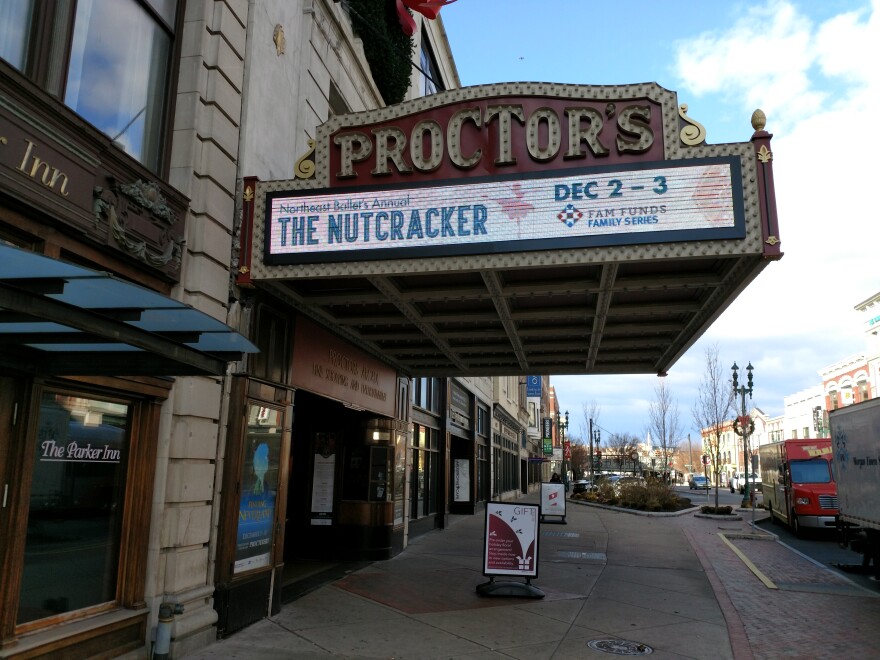The Capital Region could enter Phase Two of reopening as early as next Wednesday. As WAMC’s Southern Adirondack Bureau Chief Lucas Willard reports, businesses are sharing their stories of how they pivoted to stay afloat during the pandemic.
Mark Eagan, President of the Capital Region Chamber, knows that office life won’t be business-as-usual when the economy fully reopens.
“Some offices won’t be able to reduce because they’re going to have to have more distance. You know, the latest trend the last few were work stations with really low partitions between people which obviously are not going to work right now,” said Eagan.
Community leaders and business owners gathered on a Zoom call Thursday afternoon organized by SUNY Schenectady.
Tony Civitella, President and CEO of Transfinder, said his company was deemed essential under the New York Pause order. On March 13th, Civitella sent his employees home with office equipment to work remotely.
“We had the computers, even the HDMI cords, you name it. We made sure there was a checklist that you’re gonna be home, you’re gonna be operational,” said Civitella.
Transfinder, a Schenectady-based company that develops school bus navigation software, was able to release its new product as planned on April 6th. While staff worked from home, Civitella said he began working phones 12 hours a day, reaching out to clients. He said communication has begun playing a much larger role in his business.
Catherine Hover is CEO of Palette Café in Saratoga Springs, which opened a second café in Schenectady two weeks before the shutdown. Also deemed an essential business, Hover said she made a decision to not lay-off employees, but to be flexible in how the business would operate during the pandemic.
“And if that meant selling bread and flour and eggs on the curb, we were going to do that,” said Hower.
Arts organizations have pivoted, too, bringing programming online. But remote programming doesn’t come close to matching the revenues brought in by performances. Proctors President and CEO Philip Morris said the company was forced to lay off 115 employees, keeping 35 on hand to focus on reopening.
“Frankly, for the arts community to restart, it’s going to take a recapitalization,” said Morris.
Morris said if Proctors were to operate its mainstage in Schenectady as usual, it would effectively reduce seating from more than 4,000 to about 500. The virus is not only making Proctors accommodate audiences, but also workers backstage.
Proctors is using its Open Stage Media television capabilities to create a hyper-local arts channel. Next Saturday’s Kids Arts fest will go on, though virtually. Morris said Proctors has seen some success with the SBA’s Paycheck Protection Program, and is in line for an Economic Industry Disaster Loan. But he says more support is needed.
“If we’re six months out before we can start again or even longer, we’re going to need a substantive amount of help to be able to pull that off. I mean, everything we can do early on will get us up to a new capacity. And I’m calling it a new capacity because we’re going to look different two years from now than we did a year ago,” said Morris.
Jamaica Miles, a Capital Region community activist and Lead Organizer with Citizen Action NY, said the pandemic has amplified underlying inequalities.
“People that may have thought that they were middle-income or that they were part of a safe community, that they had enough to provide for themselves and their families…those are now individuals that know what poverty feels like,” said Miles.
Miles hopes that beyond the pandemic that the region not only move forward…
“But go forward in a way that offers everyone the opportunity to thrive and no longer struggle to survive,” said Miles.








